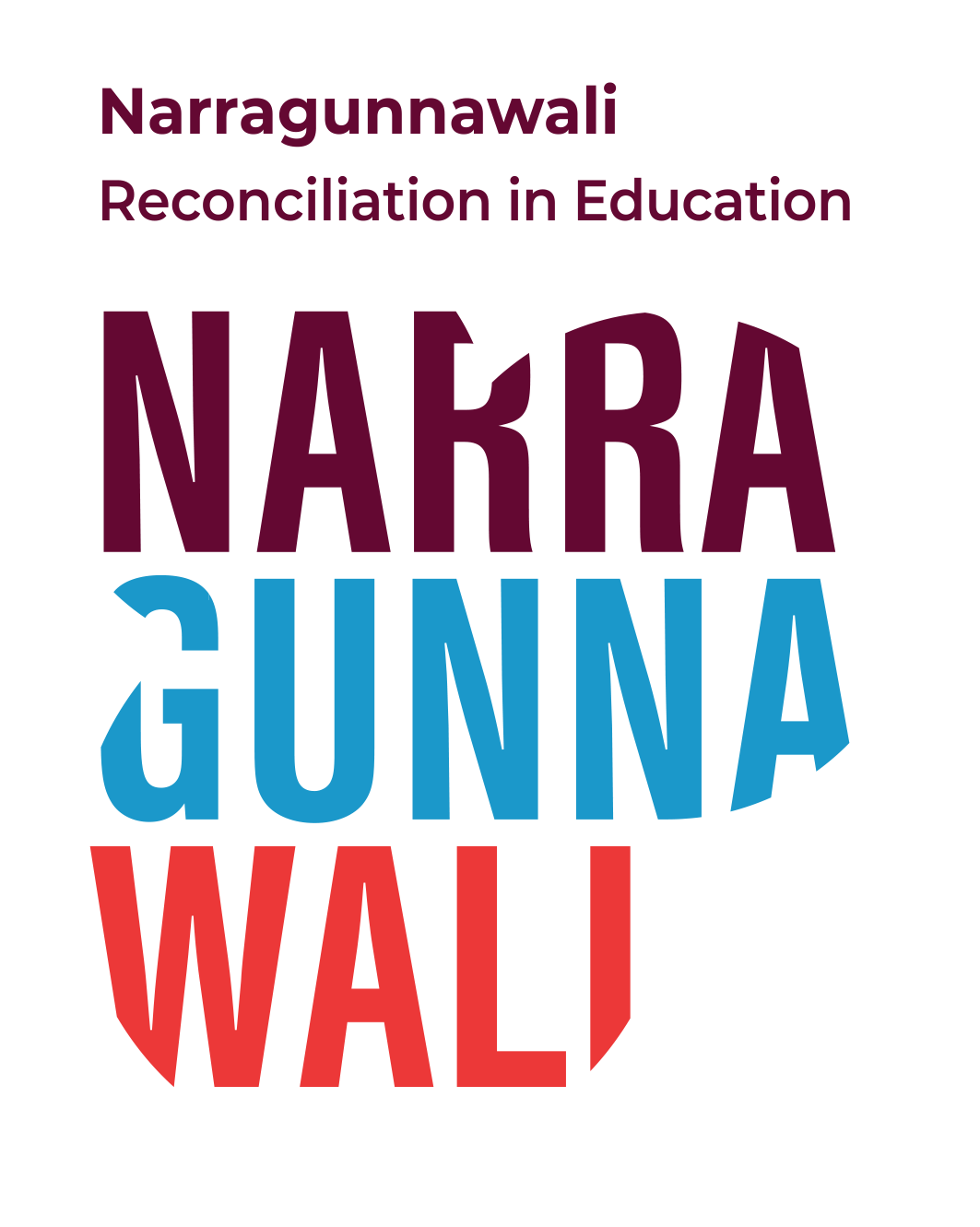Teacher Feature – David Browne, Aboriginal Studies teacher

Image: Students Taylor and Nadine, with David Browne
David Browne is a non-Indigenous Aboriginal Studies teacher
at Killara High School on Guringai Country of the Eora Nation. Narragunnawali’s Hannah and Zoe, alongside
Aurora intern Alexandra, caught up with him to talk
about his own learning journey around Aboriginal and Torres Strait Islander
cultures, histories and contributions, as well as the importance of encouraging
students to pursue their own avenues of cultural awareness and histories.
Zoe: How did your own learning journey – into better understanding and appreciating Aboriginal and Torres Strait Islander histories, cultures and contributions – begin?
David: It started with kind of being ‘woken up’ in the middle of my years of university study. Before then, I went through in the silence – I heard nothing at school about the injustices faced by Aboriginal and Torres Strait Islander peoples since colonisation, or if I did, it wasn’t taught in a meaningful enough way for me, at the time, to remember. One of my law lecturers was outraged at the ‘ten-point government plan’ in response to the Wik decision in 1997. I had never seen that. I had never seen political outrage – I had never really seen injustice – it sparked my interest in the history wars that happened in the 2000s.
Zoe: And so you’ve just continued to grow alongside your students?
David: Completely growing alongside my students... One of the things that sometimes frustrates my students is that I don’t always know the ‘answers’ to give them. They’re used to a world where the teacher provides all of the answers, but Aboriginal Studies isn’t like that. We have open discussions and I get asked questions where I’m like, ‘‘That’s an awesome question. I love that question. Well done for asking that question, but I don’t know the answer.’’ I challenge them by teaching them to value the question itself. Sometimes the questions are more important than the answers. I don’t pretend to know stuff that I don’t know.
Alexandra: Do you think that it’s important to have a school that is supportive of particular subjects such as Aboriginal Studies?
David: It’s so important to have a school that is supportive of subjects like Aboriginal Studies. I think that, for more than 200 years, education was part of the problem. It was the instrument of dispossession, really, and I think that places schools in a particular position of obligation, a particular duty to be pro-active in a social justice affirmative sense, in regards to Aboriginal education. And I’m talking Aboriginal education in both senses – in the widest set of opportunities for Aboriginal and Torres Strait Islander students in education as possible, and in bringing the value and relevance of Aboriginal and Torres Strait Islander cultures into the consciousness of non-Indigenous Australians. In a secondary setting, Aboriginal Studies rather takes a flagship role of the pro-active contribution as school can make. It demonstrates to the whole community that within a very particular cultural context. It’s great for the students who take it, but they’re a minority, a small group within the school. For me, the role of the subject of Aboriginal Studies is about the wider communication of the value and relevance of the Aboriginal and Torres Strait Islander histories, cultures and experiences to everyone.
Hannah: What are some of the challenges you experience in engaging with Aboriginal and Torres Strait Islander content in schools?
David: Challenges in terms of confidence. Often a willingness and a mindset will come first. An awareness of wanting to do something in a whole-school setting, not just Aboriginal Studies. A student earlier said that Aboriginal Studies should be mandatory, but the Board of Studies would argue that Aboriginal perspectives are [already embedded] in all curriculum areas. So the question that a lot of schools face on a regular basis is, ‘‘Are we equipped, as a profession, to deal meaningfully with syllabus topic areas of Aboriginal and Torres Strait Islander perspectives?’’ Without confidence, teachers then struggle with the idea of teaching it, because they don’t want to get it wrong. So, sometimes, the belief is that it’s better to say nothing. But I say this with optimism, because there are professional learning avenues, there are professional dialogues. Increasingly there are teachers in faculties where staff will say ‘‘How about we give this a go?’’ and it only takes one person to have that confidence. I do believe that the expertise and confidence is coming, and that it is genuine.
The other challenge is making Aboriginal Studies a priority in a busy setting such as a school – and, in relation to that, just getting the subject to run. You need the interest of students and the buy-in from the school to get it to run. We had 20 students enrolled in the subject in 2016, and about 30 this year, so it’s growing. But it’s still small, and the system of a school runs on numbers.
Zoe: What are some of the ways you try to empower your students to engage in meaningful learning about Aboriginal and Torres Strait Islander histories and cultures, and action towards reconciliation?
David: You try and set up a learning conversation about terminology in particular, and so you kind of set up those boundaries — what I’m happy to hear and what I’m not happy to hear. We talk a lot about how to equip ourselves with appropriate mindsets and terminology, and how to prepare ourselves for those impromptu conversations when you hear something racist, disrespectful or otherwise inappropriate and you go, ‘‘Did I really just hear that?!’’, and ‘‘Do I take this on now?’’, ‘‘Is this the moment to have that conversation with this person?’’, ‘‘Are they going to be receptive?’’
-
18 Apr 2024NATIONAL RECONCILIATION WEEK 2024 CURRICULUM RESOURCES
-
18 Apr 2024Teacher Feature – Sherri Bryers, Tasmania
-
18 Apr 2024Civil Discourse: Post-Referendum for schools

